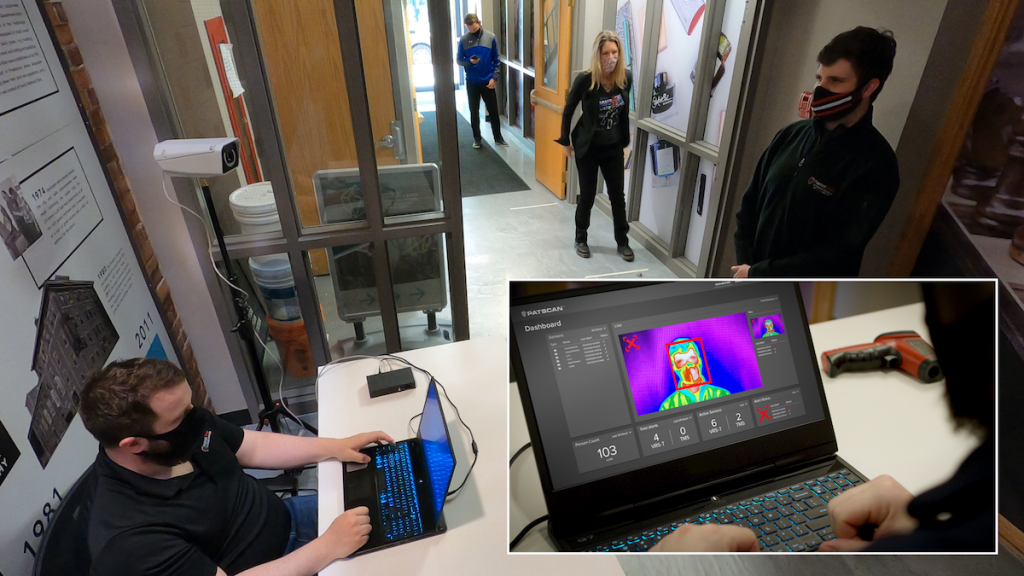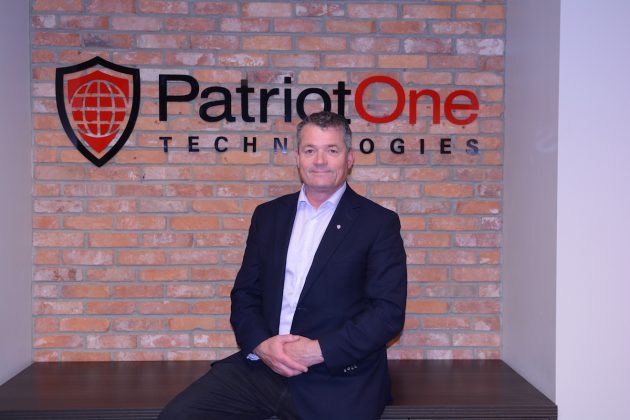
Toronto company adapts AI software for fight against COVID-19 spread
Neil Sutton
COVID-19 Updates Features patriot one SapienML thermal camera University of British Columbia Vancouver General Hospital weapons detection Xtract.ai Image courtesy Patriot One
Image courtesy Patriot One A Toronto-based technology company is using its threat detection and weapons detection expertise to help detect potential COVID-19 carriers, in some cases in the very early stages of infection.
Patriot One Technologies is pairing its PATSCAN AI software with off-the-shelf thermal cameras to scan for elevated body temperature — a logical extension of what the software was designed to do, says Martin Cronin, CEO and director, Patriot One, which is to detect anomalies. “On the face of it, it looks like a bit of a pivot but it’s not. It was a fairly short stretch for us. We’ve been working with thermal cameras anyway for weapons detection — detecting a cold weapon on a warm body — so we had a good understanding of thermal cameras,” he explains.
Prior to the pandemic, Patriot One was in the test phase for its detection tools with several clients, including sports facilities and event centres. While venues that rely on mass gatherings haven’t been able to operate in recent months over concerns about the spread of the virus, they are very much in preparation mode, says Cronin.
“Although they’re shut down, they are looking at how do they reopen and what does the security architecture look like? Obviously, they are also looking at the health and safety aspect of screening for fever, etc. Our health and safety modules are elevated body temperature detection and mask detection combined, so there is interest from those kinds of event centres.”
Early detection
Patriot One is also working directly with health-care facilities to help them identify the risk of COVID-19 infections earlier. The company’s B.C.-based Xtract.ai division is collaborating with Amazon Web Services, Vancouver General Hospital, the University of British Columbia (UBC), and SapienML to help radiologists analyze data generated from CT and X-ray scans. The thinking is that the lungs may provide early indicators that the onset of the virus is imminent.
The company is also working with UBC on heat distribution mapping to understand the difference between hyperthermia (elevated temperature from physical activity or standing in the sun) and elevated temperature from fever or inflammation.
“Biological threats are top of mind now, I don’t think that sense is going away,” says Cronin. “Even if COVID subsides if we get a vaccine, it’s not going to be the last horrific viral threat that we’ll have to deal with. There are many worse things out there. I think the world is waking up finally to the notion of investing in technologies for preparedness and viral threats. We intend to be a key part of that.”
Print this page
Advertisement
- Tory says masking bylaw could be brought in if apartment buildings don’t comply
- International Security Officers’ Day

Leave a Reply